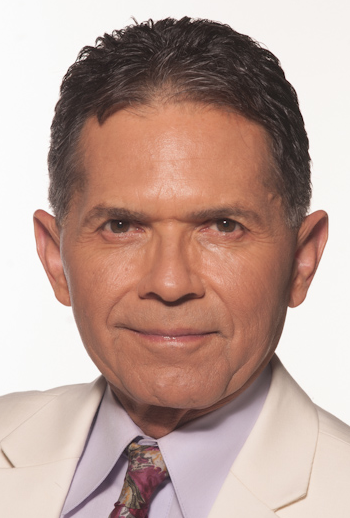Editor’s note: Amigos805 welcomes local guest columns, letters to the editor and other submissions from our readers. All opinions expressed in submitted material are those of the author and do not necessarily represent the viewpoint of Amigos805.
By David Magallanes • Guest contributor

David Magallanes
This past week, Russian president Vladmir Putin threatened “chaos” in world affairs if the U.S. were to continue attacking Syria. He’s over a year late. The U.S. has been sowing chaos and confusing world leaders, including our allies, since around January of last year. It seems like chaos is the “new normal” in our approach to events and to the circumstances that surround us. State governors, presidents, prime ministers and kings and queens are continually knocked off-balance by U.S. leaders and officials who contradict each other on a regular basis. It’s hard to discern whether our national government is executing a brilliant strategy, or is remarkably inept.
At around the time that Rex Tillerson, former Secretary of State, was assuring the world that diplomacy was the approach being taken with North Korea, President Trump was insulting its leader and threatening “fire and fury.” Trump had promised the “Dreamers” under DACA protection that they “had nothing to worry about,” but then pivoted several months later and declared that there would be “no DACA deal,” which meant that indeed they had plenty to worry about. More recently, just one day after U.S. Ambassador to the United Nations Nikki Haley was announcing to the world that we were planning additional sanctions against Russia for its support Syria, which had just launched a chemical attack against its own people, President Trump refused to enable those sanctions. The list of other examples is seemingly endless.
There is a branch of mathematics known as “chaos theory.” It studies the effects of small changes that potentially induce deviations, wild swings, or even chaos, in systems. Sometimes the chaos is “controllable” and even anticipated. But at other times the conditions are such that the chaos is unpredictable and potentially frightening. When we throw nuclear arms and impulsive personalities into the equation, the possibilities are undeniably frightening.
— David Magallanes is a writer, speaker and professor of mathematics.
***
El Caos: ¿Estrategia o Ineptitud?
Por David Magallanes • Columnista invitado
Esta semana pasada, el presidente ruso Vladimir Putin amenazó con el “caos” en los asuntos mundiales si Estados Unidos continuara atacando a Siria. Llegó atrasado por más de un año. Nuestro país ha estado sembrando el caos y confundiendo a los líderes mundiales, incluidos nuestros aliados, desde aproximadamente enero del año pasado. Parece que el caos es la “nueva normalidad” en nuestras respuestas a los eventos y a las circunstancias que nos rodean. Gobernadores, presidentes, primeros ministros, tanto como los reyes y reinas del mundo continuamente se encuentran desequilibrados por los líderes y funcionarios de los EE. UU. quienes se contradicen entre sí de manera regular. Es difícil discernir si nuestro gobierno nacional está ejecutando una estrategia brillante, o si es notablemente inepto.
Al mismo tiempo que Rex Tillerson, anteriormente el Secretario de Estado, aseguraba al mundo que íbamos a intentar la diplomacia con Corea del Norte, el presidente Trump andaba insultando a su líder y amenazó con “fuego y furia”. Trump había prometido a los “Dreamers” bajo la protección de DACA que “no tenían nada de qué preocuparse”, pero luego varios meses después dio un girazo y declaró que no habría ningún acuerdo sobre DACA”, lo cual significó que de hecho tenían mucho de qué preocuparse. Más recientemente, solo un día después de que la embajadora de Estados Unidos a las Naciones Unidas, Nikki Haley, anunciara al mundo que estábamos planeando sanciones adicionales contra Rusia por su apoyo a Siria, que acababa de lanzar un ataque químico contra su propia gente, el presidente Trump se negó a permitir esas sanciones. La lista de otros ejemplos es aparentemente interminable.
Existe una rama de las matemáticas conocida como “teoría del caos”. Estudia los efectos de pequeños cambios que potencialmente inducen desviaciones, cambios bruscos o incluso caos en los sistemas. Algunas veces el caos es “controlable” y hasta anticipado. Pero en otras ocasiones las condiciones son tales que el caos es impredecible y potencialmente espantoso. Cuando agregamos a la ecuación las armas nucleares y personalidades impulsivas, las posibilidades son innegablemente aterradoras.
— David Magallanes es un escritor, orador y profesor de matemáticas.
Editor’s note: Amigos805 welcomes comments on stories appearing in Amigos805 and on issues impacting the community. Comments must relate directly to stories published in Amigos805, no spam please. We reserve the right to remove or edit comments. Full name, city required. Contact information (telephone, email) will not be published. Please send your comments directly to frank@amigos805.com
